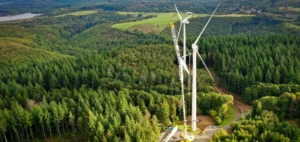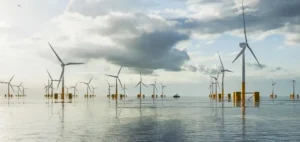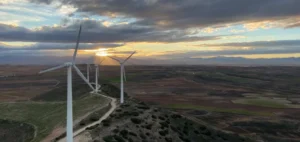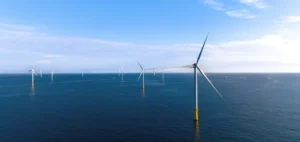Latvia is strengthening its energy independence. In fact, RWE and Latvenergo are joining forces in the field of offshore wind power in the Latvian Baltic Sea. These partners wish to jointly develop, build and operate offshore wind farms. Projects that strengthen Latvia’s energy independence as the country has stopped importing Russian gas.
Association of two major players in renewable energy
RWE, a global player in the field of renewable energy, and Latvenergo, a major electricity supplier in the Baltic States, have joined forces. Latvenergo intends to bring its deep knowledge of the Latvian energy market and regulations. For its part, RWE wants to bring 20 years of experience in offshore wind power.
A memorandum of understanding was signed between the two companies. This partnership represents a considerable combination of experience and expertise in offshore wind for Latvia.
RWE currently operates 18 offshore wind farms in five countries. Latvernergo is one of the most ecological electricity producers in Europe. Thus, these companies want to meet Latvia’s objectives for offshore wind turbines.
Sven Utermöhlen, CEO Offshore Wind of RWE Renewables, says:
“Together with our partner Latvenergo, we are committed to contributing to the realization of Latvia’s offshore wind ambitions, hand in hand with local communities and the supply chain.”
Supporting Latvia’s energy independence
This powerful partnership aims to support the country’s energy independence. Latvia aims to increase its wind capacity from the current 70 MW to 800 MW by 2030. For Ilze Indriksone, Latvia’s Minister of Economy, it is clear that this association meets the objectives of energy independence:
“The participation of state-owned companies is more than welcome in research, development and cooperation with international partners. Entering into agreements in the field of research accelerates our goal of achieving energy security and independence.”
In addition, the country has many natural resources, which Latvenergo wishes to fully exploit. MārtiņšČakste, CEO of Latvenergo, emphasizes this ambition:
“By efficiently harnessing the power of the Daugava River and the sun, as well as Latvia’s onshore and offshore wind power, the country will have its own independent electricity in all types of weather conditions and at lower prices.”
Thus, this association will undoubtedly increase the energy independence of the country but also of neighboring countries. This will also allow the export of electricity to the European market.






















